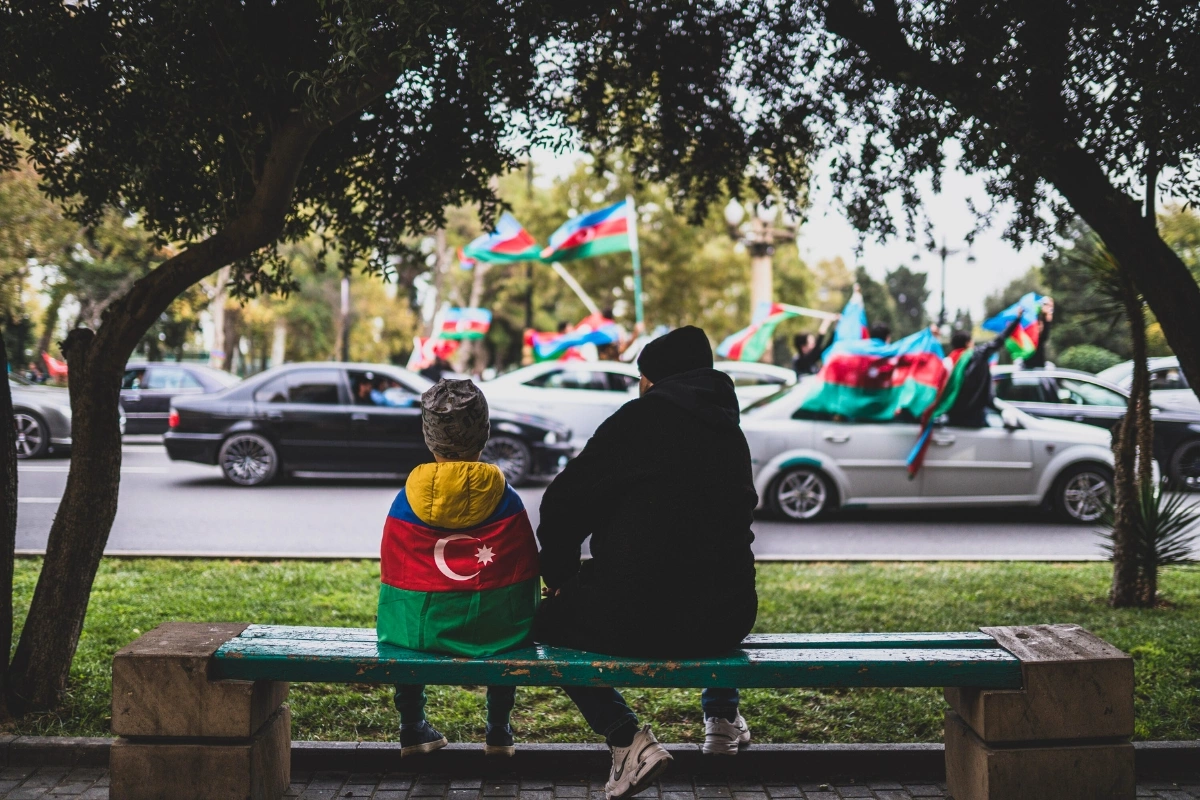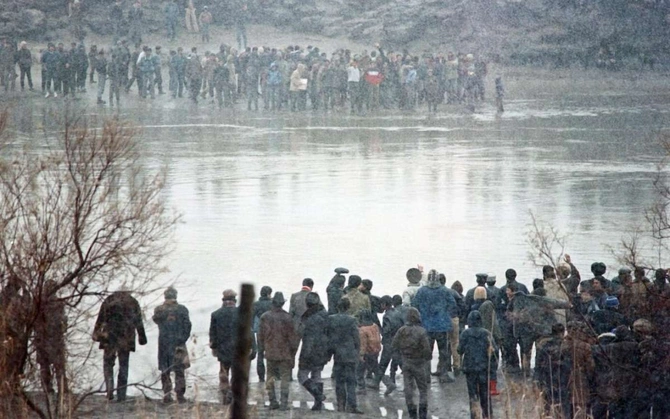
The day that reminds Azerbaijanis of the world of the importance of their unity and loyalty to their roots
Mary Efendi at a book signing of her novel on a US book tour. Image: Serkan Uslu/Shutterstock
For some, 31 December is a day signifying the end of yet another year and the preparation for the New Year’s celebration, but for 50 million Azerbaijanis in the world, it’s a reminder of their unity. Today, only 10 million live in the Republic of Azerbaijan, while the rest are scattered around the globe, with the majority, around 30 million ethnic Azerbaijanis, living in Iran.
On this day, in 1989, the Azerbaijanis of Nakhchivan, at the time part of the Soviet Union, and the Azerbaijanis of Iran broke down the Azerbaijani-Iranian border to reunite and, for a brief moment, become one nation. Inspired by the fall of the Berlin Wall, the Azerbaijanis’ reunion became an unprecedented event in Soviet history, as the empire’s borders had never been dismantled before. The photo of Azerbaijanis standing by different sides of the Araz River, separating Azerbaijan from Iran, and looking at each other from the opposite ends became symbolic.

Image: social media
It was only in 1992 that the newly independent Republic of Azerbaijan declared it a public holiday since then celebrated annually by the Azerbaijani diaspora, reminding them of the importance of unity. On this day, they put aside their different political, religious, or social views and celebrate their roots.
It might seem odd to others why we need a day to celebrate being Azerbaijani. In the age of multiculturalism and globalism, why do we still care about our origins? The reason is rather simple—we are embracing our Azerbaijani identity because, for years, we couldn’t. Even today, those Azerbaijanis who live in Iran, and that is a big percentage of Azerbaijanis in the world, still have to fight for their rights, their language, and their ability to call themselves Azerbaijani.
During the Second Karabakh War, the common verbal insult towards Azerbaijanis online was that ‘Coca-Cola is older than your country.’ Indeed, Azerbaijan as a Republic did not exist before 1918, when, due to the collapse of the Russian Empire, it finally had the right to self-determination. But so did the two neighbouring countries in the South Caucasus. ‘Your nation was invented by Stalin’, ‘You are Turks’, ‘You are Iranians’, ‘You are nomads that came from Central Asia,’ these are some of a few other accusations that Azerbaijanis continuously have to defend themselves against. And it feels exhausting having to defend your right to be called a nation, having to be a walking encyclopedia citing your history against any conspiracies of your origin.
So when we see the footage from 1989 of Azerbaijanis on two sides of the Araz River looking at each other and breaking the fence separating them, we are reminded of how, despite being cut in half after the signing of the Turkmenchay treaty between Persia and Russia in 1828, Azerbaijanis remained Azerbaijanis. Even though one side eventually became Russified and the other Persianized, which resulted in some cultural and societal changes between the two, there they are, speaking the same language, longing for a reunion. And for a short period in recent history, that wish came true, for fences were not strong enough to keep Azerbaijanis apart.
Imperialism apologists believe we need to move on and focus on the present. What they fail to understand is how generational oppression doesn’t cancel the long-term effects that affect the oppressed even after the oppression ends. When I talk to my Azerbaijani-born father about his childhood under the Soviet regime and his lack of knowledge of Azerbaijani history because it was erased to fit Soviet propaganda, I think of today’s Azerbaijanis in Iran, who similarly to Azerbaijanis under Soviet rule, can be deemed separatists for any sign of being too Azerbaijani and not enough Iranian.
But then there are Azerbaijanis from Azerbaijan. As a diaspora Azerbaijani who has never lived in Azerbaijan, I feel that they can occasionally forget the importance of having your land. The land where your language can be spoken freely, your history unconcealed, and your people being the majority. Instead, there is a class disparity between them, with more privileged Bakuvians looking down on Azerbaijanis from smaller towns and villages. When you live abroad your whole life, the last thing you care to ask when you meet another Azerbaijani is where ‘exactly’ they are from, but some Azerbaijanis from the Republic care about it enough to try to distinguish one another based on their prejudice toward a certain region. For a country that only recently returned 20% of its land from occupation, that is bold, as when Karabakh and its seven regions were cut off from the rest of Azerbaijan, it didn’t matter who was from Karabakh and who wasn’t because it was a shared pain for all of us.
Although Solidarity Day is mostly aimed at the diaspora Azerbaijanis like me not to forget our roots, I think it is also the Azerbaijanis from Azerbaijan who need to be reminded of the importance of our unity. They need to stop dividing each other by their class, city, village, or sect of Islam they follow and instead start embracing their solidarity towards one another and our shared identity.
On 18 October 2020, thirty-one years after Azerbaijanis broke down the fence between the Soviet-Iranian border, the second reunion of Azerbaijanis happened at the

Share on social media